11 Reasons For Cat Lethargic Not Eating or Drinking
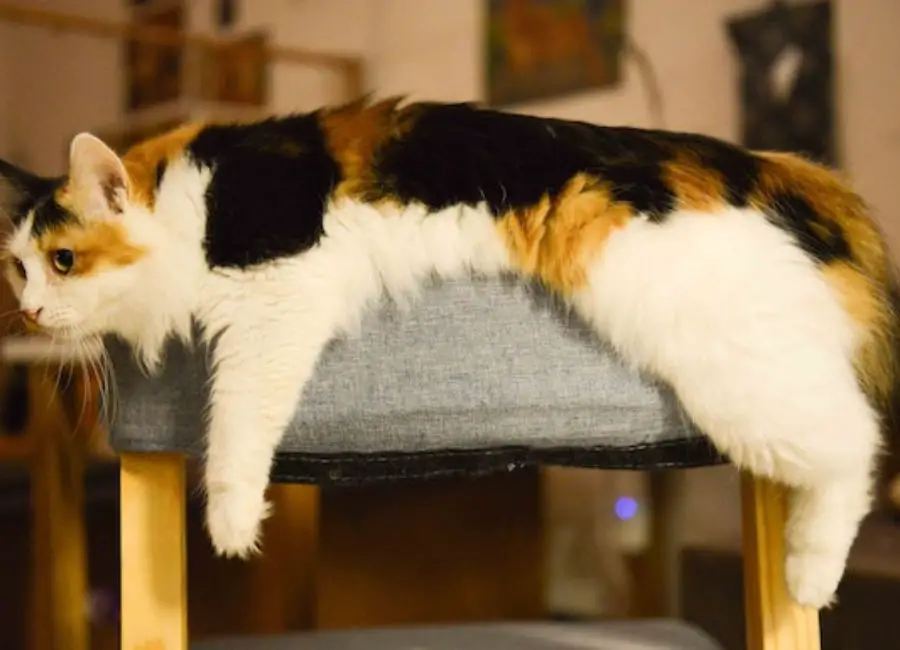
Has your furry friend been acting lethargic lately? Is your cat not eating or drinking as they normally would?
It’s natural to worry when our pets seem to be unwell, but don’t worry, we’re here to help.
In this blog post, we’ll explore the reasons why your cat may be feeling under the weather and what you can do to help them feel better. Let’s dive in!
Why is My Cat Lethargic Not Eating or Drinking
There can be multiple reasons why a cat can be lethargic and not eating or drinking which include viral infections, ingestion of a foreign object, food intolerances, stress, kidney failure, liver disease, and dehydration.
If you notice that your cat is extremely lethargic or if their lethargy occurs in combination with other serious symptoms, you should immediately call your veterinarian.
Ignoring these symptoms can lead to more serious issues with your cat, like trauma.
Let’s dig deeper…
Reasons for Cat Lethargic Not Eating or Drinking
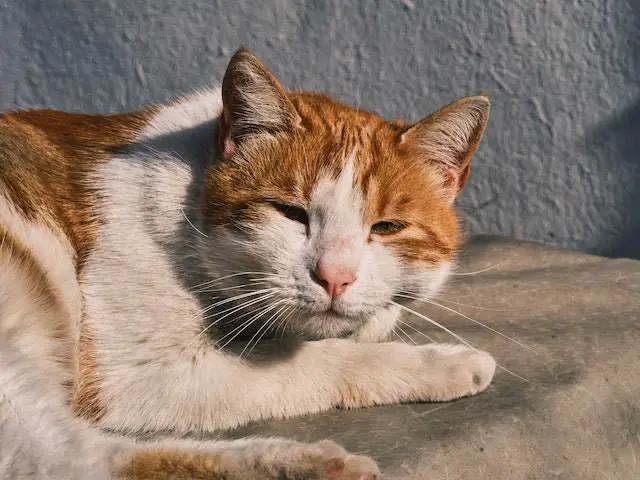
The following are some of the most common reasons for cat lethargic not eating or drinking:
1. Dental Issues
Your cat’s appetite may decrease due to oral health issues like tooth decay, gum disease, or mouth ulcers that make eating difficult.
Check your cat’s mouth frequently for any indications of swelling, redness, or poor breath.
Consult with your veterinarian if you spot any anomalies. A balanced diet and routine dental cleanings can help avoid tooth problems in the future.
For a complete evaluation of your cat’s oral health and to carry out any necessary dental procedures, your veterinarian may advise a dental checkup under anesthetic.
2. Illness or Pain
Your cat’s lack of appetite and refusal to drink or eat could indicate an underlying disease or suffering.
It’s important to remain alert to any changes in a cat’s behavior because cats are experts at masking discomfort.
Discomfort and appetite loss can be brought on by a number of illnesses, including gastrointestinal difficulties, urinary tract infections, and dental problems.
It is essential to quickly seek veterinarian care in such circumstances.
Identifying the cause with the aid of a comprehensive examination will allow for the provision of the necessary care.
Follow your veterinarian’s recommendations for medication, food changes, and any required aftercare.
3. Digestive Problems
Your cat’s appetite and energy levels may be impacted by digestive problems such as diarrhea, constipation, or inflammatory bowel disease.
Consult your veterinarian for an accurate diagnosis if your cat’s lethargy and bowel habits change and persist.
In order to determine the cause and properly treat it, they could suggest dietary modifications, medications, or more tests.
You can promote your cat’s digestive health by feeding them a high-quality, readily digestible diet and making sure they stay hydrated.
4. Infection or Fever
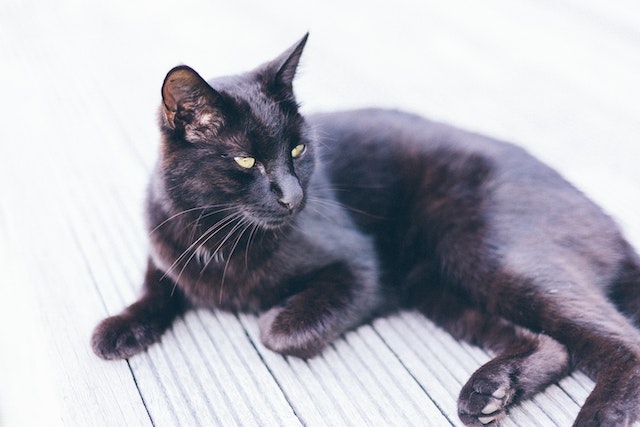
Your cat may feel lethargic and resist eating or drinking if it has a viral or bacterial infection.
Infections frequently come with fever, which exacerbates the general feeling of weakness.
Watch for signs such as sneezing, nasal discharge, or a rise in body temperature.
In these situations, it’s crucial to seek immediate veterinarian care because your cat might need supportive therapy or antibiotics to recuperate.
Maintain a warm and welcoming atmosphere for your cat’s rehabilitation, and adhere to your veterinarian’s prescription instructions for drugs.
5. Parasites
Your cat may experience severe discomfort from internal or external parasites including fleas, ticks, worms, or mites.
Lethargy and a decrease in appetite are side effects of inflammation. Regular preventative procedures, including deworming and flea treatments, can aid in preventing infestations.
Consult your veterinarian for the best course of action if your cat exhibits symptoms of parasite-related problems.
To get rid of the parasites and relieve your cat’s problems, they might suggest particular drugs or topically applied remedies.
6. Side Effects of Medications
Lethargy or a brief loss of appetite in cats can be brought on by some drugs. Check the label for possible adverse effects if you recently began your cat on a new medicine.
Some drugs may make you feel sleepy or upset your stomach, which may make your cat less inclined to eat.
Consult your veterinarian if these symptoms continue or get worse. He or she may change the dosage or recommend a different drug.
Maintain the recommended dosage schedule while keeping a close eye on your cat’s progress.
Learn more about the side effects of cat dewormers.
7. Allergies or Food Intolerances
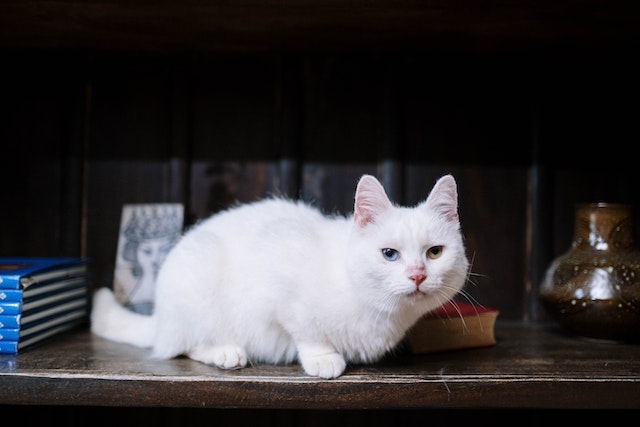
Cats can experience dietary intolerances or allergies, just like humans do.
It may be an unfavorable reaction to anything they ate if your cat is lethargic and not eating.
Certain proteins, cereals, or food additives are frequently to blame cat lethargic not eating or drinking.
Change to a hypoallergenic diet and seek advice from your veterinarian on how to recognize and treat potential food allergies.
To identify the allergens and provide advice on the right diet for your cat, your veterinarian may suggest an elimination diet or allergy testing.
Learn more about what to feed your cat with diarrhea and vomiting.
8. Stress or Anxiety
Being sensitive animals, cats may experience worry or anxiety if their surroundings undergo a substantial shift.
Your cat may lose their appetite and become lethargic as a result of moving to a new house, getting a new pet, or even loud noises.
The disturbance of their routine can have a significant impact on cats because they are creatures of habit.
Create a relaxing, comfortable environment for your cat, give them lots of hiding places, and think about using pheromone diffusers or natural medicines like lavender to help them unwind.
Give your cat time to adjust as you gradually introduce changes to their surroundings.
9. Heatstroke
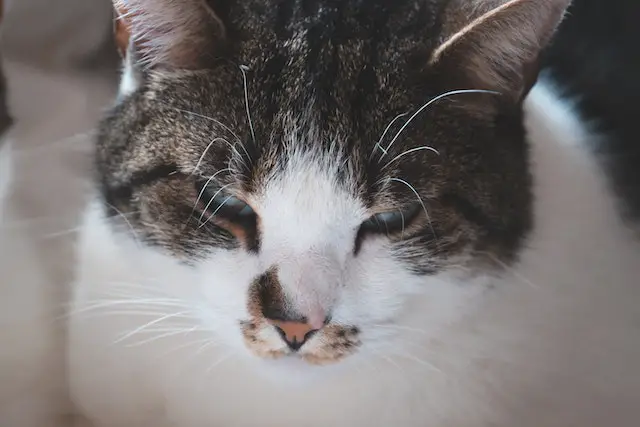
Cats are susceptible to heatstroke, particularly in the summer. Lethargy and a loss of appetite might result from heatstroke.
Especially on hot days, make sure your cat has access to shade, fresh water, and a cool environment to avoid heatstroke.
Move your cat to a cooler location, spray cool (not frigid) water on their body, and call a vet right away if you think they may be experiencing heatstroke. Heatstroke can be fatal, thus it needs to be treated right away.
10. Dehydration
If your cat doesn’t drink enough water, dehydration may result. Health issues, kidney issues, or even a dislike of using dirty water bowls can all contribute to this.
Consistently clean your cat’s water bowls and make sure they have access to fresh water at all times.
If your cat continues to be lethargic and dehydrated, keep a close eye on their water consumption and seek prompt medical assistance from your veterinarian because IV fluids may be required.
Your veterinarian can determine whether your cat is dehydrated and can administer the required fluids and supportive care.
Cats’ appetites and energy levels may decline as they get older. Senior cats are more likely to develop diseases like arthritis, kidney disease, or dental issues, all of which can cause them to become lethargic and lose their appetite.
These aging-related concerns can be successfully managed with routine veterinary examinations and a balanced diet catered to their individual requirements.
To enhance the general health of your senior cat, your veterinarian may suggest dietary changes, pain management techniques, or supplements.
Ways to Help a Cat Lethargic Not Eating or Drinking
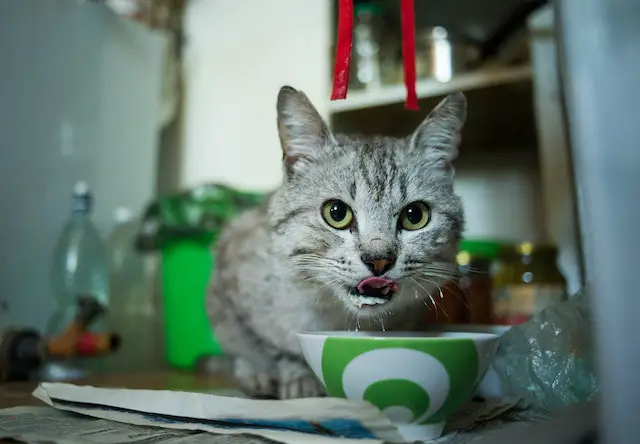
When a cat is lethargic and not eating or drinking, it may be a sign of an underlying health problem.
Here are some common ways to help a cat in this situation:
- Consult with a veterinarian: The first step is to take the cat to a vet. The veterinarian will examine the cat and run some diagnostic tests to identify the underlying cause of the lethargy and the loss of appetite.
- Provide a comfortable environment: A comfortable and quiet environment will help the cat to feel relaxed and safe. Make sure to provide a warm and cozy bed, away from any noise or disturbance.
- Encourage hydration: Provide fresh water regularly and encourage the cat to drink by using a water fountain or adding broth to the water. Consider offering wet food, which provides additional hydration.
- Offer tempting treats: Try offering treats that the cat enjoys, which may encourage them to start eating again. Alternatively, try putting a small amount of tuna juice or chicken broth on their food.
- Gradually switch to a different diet: If the cat is not interested in their regular food, gradually switch to a different type of food that is more tempting to the cat. Start by mixing a small amount of the new food with the old food and slowly increase the amount over several days.
- Hand-feeding: If necessary, try hand-feeding the cat with a syringe or a dropper. Be sure to use soft and palatable food mixed with water.
- Give medications as prescribed: If the veterinarian prescribes medication for the cat, make sure to give it as recommended and follow the instructions carefully.
- Keep the litter box clean: A clean litter box encourages the cat to do its business regularly and can help it feel more comfortable and at ease.
- Monitor the cat’s behavior and progress: Keep a close eye on the cat’s behavior and progress, and consult the veterinarian if there are no signs of improvement or if the cat’s condition worsens.
It is important to note that this list is not exhaustive, and the specific treatment plan will depend on the underlying cause of the cat’s lethargy and loss of appetite.
Therefore, consulting with a veterinarian is crucial in providing the best care for a cat that is lethargic and not eating or drinking.
Learn more about why your cat is losing weight.
Related Questions
My cat seems really restless and isn’t interested in eating or drinking. What could be the cause?
There are a few potential reasons why your cat may be lethargic and not eating or drinking. It could be due to an underlying illness, stress, dental problems, or even simply a change in routine. It’s best to take your cat to a veterinarian to get a proper diagnosis and treatment.
Learn more about why cats throw up.
Can I give my lethargic cat some human food to entice them to eat?
As tempting as it may be, it’s not recommended to give your cat human food, especially if they’re already showing signs of illness. Certain foods can be toxic to cats and could make their condition worse. Stick to offering them their regular cat food, and if they don’t eat it, seek veterinary care.
What are some warning signs that my cat is dehydrated?
One of the biggest red flags of dehydration in cats is when they stop drinking altogether. Other signs can include lethargy, sunken eyes, dry mouth, panting, and a lack of skin elasticity. If you suspect your cat is dehydrated, take them to a vet immediately.
My cat is normally very active but has been sleeping all day. Should I be concerned?
It’s always better to err on the side of caution when it comes to your pet’s health. If your cat has had a sudden change in behavior, particularly if it’s lasted for more than a day or two, it’s best to take them to a vet for a checkup.
How can I tell if my cat is in pain?
Cats are notoriously good at hiding their pain, but some signs to look out for include a change in behavior (such as hiding or becoming more aggressive), loss of appetite, lethargy, vocalization (such as crying or growling), and changes in mobility.
My cat is refusing to eat even after visiting the vet. What can I do?
If your cat continues to refuse food and water, it’s important not to force them to eat. Instead, try offering them small amounts of water and a variety of different foods to see if there’s something they’ll respond to. If the problem persists, your vet may recommend a feeding tube or other specialized treatment.
Conclusion
In conclusion, if your furry friend is feeling lethargic and not eating or drinking, it’s important to take action.
Pay attention to any other symptoms they may be experiencing, consult with your vet, and make changes to their living environment as needed.
With proper care and attention, your cat can start feeling like themselves again in no time. Don’t give up hope, and always prioritize the health and happiness of your beloved pet.
